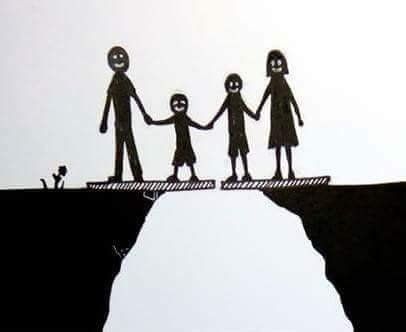
Relationships norms are changing so rapidly as the world around us, we have more chances to connect or disconnect.
In Nigeria changes in marriage and in the public and private dimensions of gender equality asymmetry have not occurred uniformly or beyond the continuing influences of powerful kinship system and structures of inequalities.
In my article, I focus on young women experiences and management of the transition from premarital sexual relationships and courtships to marriage and parenthood. The marriages of young couples in contemporary society of Nigeria are clearly different from their parents.
Describing the differences between my Aunt marriage and her parents’ marriage, my 30-year-old Aunt married for three years said: “My father had two wives and six children.
Often it was every woman for herself, My husband and I have a partnership. We decide things. There is love between us". Perhaps the most concise way to contrast recent marriages with the past is to note that young couples see their marriages as a life project, in which they as a couple are the primary actors and where the idea of being in love is one of the principal foundations of the relationship, whereas their parents’ marriages were more obviously embedded in the structures of the extended family.
The differences are most pronounced in how husbands and wives resolve marital quarrels and in decision-making about contributions to their children’s education and well-being. In each of these scenario, people in self ascribed love marriages tend to emphasize the primacy of the individual couple and their personal relationship, often in conscious opposition to the constraints imposed by ties to kin and community.
I as a Nigerian woman would rather remain single than marry if need be with reasons being that a Nigeria man would hide his true disposition until they have stepped their foot over the threshold of matrimonial home then their true character emerges.
I had ones a read a story of a lady who narrated her plight on her wedding night where she was beaten and raped by her husband for not counting the money recovered from the wedding event and these had me wondering if most men just wait to get married so they can unleash their evil intension on their wives and even to the children as well?
Unfortunately for undiscerning women, Nigerian families do not encourage or support divorce so they’ll just have to put up, endure and make the best of the bad situation. But the questions remain: how are young women able to manage their self presentation for men as they make the shift from single to married; how is the transformation experienced by women once they are married and how is all this experienced by men?.
Nice piece.